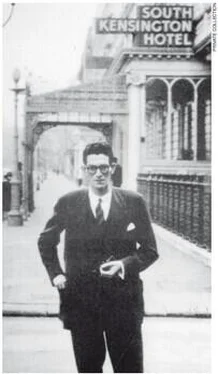Ben Macintyre - A Spy Among Friends
Здесь есть возможность читать онлайн «Ben Macintyre - A Spy Among Friends» весь текст электронной книги совершенно бесплатно (целиком полную версию без сокращений). В некоторых случаях можно слушать аудио, скачать через торрент в формате fb2 и присутствует краткое содержание. Год выпуска: 2014, ISBN: 2014, Издательство: Bloomsbury Publishing, Жанр: Старинная литература, на английском языке. Описание произведения, (предисловие) а так же отзывы посетителей доступны на портале библиотеки ЛибКат.
- Название:A Spy Among Friends
- Автор:
- Издательство:Bloomsbury Publishing
- Жанр:
- Год:2014
- ISBN:9781408851746
- Рейтинг книги:5 / 5. Голосов: 1
-
Избранное:Добавить в избранное
- Отзывы:
-
Ваша оценка:
- 100
- 1
- 2
- 3
- 4
- 5
A Spy Among Friends: краткое содержание, описание и аннотация
Предлагаем к чтению аннотацию, описание, краткое содержание или предисловие (зависит от того, что написал сам автор книги «A Spy Among Friends»). Если вы не нашли необходимую информацию о книге — напишите в комментариях, мы постараемся отыскать её.
A Spy Among Friends — читать онлайн бесплатно полную книгу (весь текст) целиком
Ниже представлен текст книги, разбитый по страницам. Система сохранения места последней прочитанной страницы, позволяет с удобством читать онлайн бесплатно книгу «A Spy Among Friends», без необходимости каждый раз заново искать на чём Вы остановились. Поставьте закладку, и сможете в любой момент перейти на страницу, на которой закончили чтение.
Интервал:
Закладка:
The Vermehrens had to move fast, and so did Elliott. Under the pretence of familiarising himself with the office paperwork, Vermehren began extracting what seemed to be the most important Abwehr files, including an organogram of ‘the complete Abwehr setup in Istanbul’ and a ‘quantity of detailed information’ about Abwehr operations in the Near and Middle East. These were photographed by Elliott, and then returned to the Abwehr office by Vermehren. Leverkühn gave his new assistant full access to the files, and Vermehren was soon passing on huge quantities of information every night. But time was running out. On 25 January, one of Elliott’s informants in the Turkish police tipped him off that they knew Vermehren was in contact with the British; Leverkühn had his own police spies, and ‘it would not be long, therefore, before the Germans got wind’ of what was afoot.
Two days later, Erich and Elisabeth Vermehren attended a cocktail party at the Spanish embassy. As the couple left the building, they were seized by two men and bundled into a waiting car. The scene was stage-managed by Elliott to make it appear that they had been kidnapped, in order to buy time and perhaps limit reprisals against their families. The Vermehrens were driven southeast to the coast near Smyrna, transferred to a fast motor launch, which then accelerated into the Mediterranean darkness. Twenty-four hours later they were in Cairo, still wearing their party clothes.
Paul Leverkühn reacted to the Vermehrens’ disappearance with bafflement, followed by anger, and then sheer, paralysing panic. The Abwehr chief, MI6 reported happily, was in ‘a hell of a flap’. Von Papen cut short a skiing holiday in the Bursa Mountains to take personal command of the crisis, and demanded that the Turkish police track down the fugitives. The Turks politely agreed to help, and did nothing at all. Leverkühn was ordered back to Berlin. As the Germans scoured Istanbul, Ernst Kaltenbrunner, Hitler’s brutal security chief, gave orders that the Istanbul Abwehr be thoroughly investigated and purged, since more enemy spies must be lurking there. He was right. Several of Luverkühn’s colleagues now also decided to bolt. Karl Alois Kleczkowski, a forty-three-year-old journalist who had worked as a German propagandist and rumour-collector for the Abwehr, went into hiding in a safe house on the city’s outskirts. Wilhelm Hamburger, the heir to an Austrian paper fortune, was one of Leverkühn’s most trusted deputies. Posing as a flax buyer, he had spent much of the war gathering intelligence on the Middle East, while seldom leaving his table at the Park Hotel. He was also in touch with the Allied intelligence services. On 7 February he was woken by two German officers and told he was under arrest. Hamburger asked if he could call his most important Turkish agent ‘lest his disappearance provoke controversy’.
Bizarrely, he was allowed to do so: Hamburger dialled a prearranged number, got through to his OSS contact, and uttered the following words: ‘I am going to Berlin for a week and will be back. Tell it to the Marines .’ (Slang for nonsense.) Half an hour later, with Hamburger still packing and stalling, a car pulled up outside his house. Hamburger raced out of the front door before his captors could stop him, jumped in the back seat, and was driven at high speed to the British consulate, where ‘he was given breakfast and a new identity’. The two defectors followed the Vermehrens’ secret escape route to Egypt. Packy Macfarland of OSS sent a jubilant message to Washington, reporting that Cairo was in danger of being ‘swamped by an invasion of evaders and turncoats’. Kaltenbrunner conveyed the bad news to Hitler: Vermehren’s defection had ‘gravely prejudiced the activities not only of the Abwehr-Istanbul but of our other military agencies in Turkey. The entire work of the Abwehr station has been exposed and its continuation seems impracticable.’
Having spirited no fewer than four defectors out of Istanbul, Elliott followed them to Britain. He travelled by train to Lebanon, and then on by air via Cairo, Algiers and Casablanca, before finally arriving at Newquay, Cornwall, after an ‘exceedingly tedious and uncomfortable’ journey lasting more than a week.
Kim Philby, ever helpful, had offered the use of his mother’s Kensington flat as a place to house the Vermehrens on their arrival in London. The defection was so secret that not even MI5 knew they were in the country. Elliott went straight to Dora Philby’s flat in Drayton Gardens, South Kensington, where he was greeted by a beaming Philby, and reunited with the Vermehrens. Over the next fortnight, Philby and Elliott put the couple through a friendly, detailed and rigorous debriefing. Vermehren had worked for the Abwehr for only a few months, yet the information he had to impart was supremely valuable: the structure of German intelligence, its operations in the Middle East, the identities of its officers and agents; Elisabeth Vermehren furnished chapter and verse on the Catholic underground resistance in Germany. The Vermehrens’ piety made them quite irritating. Whereas most spies are compelled by a variety of motives, including adventure, idealism and avarice, and can thus be manipulated, the Vermehrens served only God, which made them unpredictable and occasionally uncooperative. ‘They are so God-awful conscientious you never know what they’re going to do next,’ Elliott complained to Philby in exasperation, after sitting through another of Vermehren’s religious homilies. Vermehren was codenamed ‘Precious’, because that is what he was, in more ways than one.
During a break in the debriefing process, Elliott at last had an opportunity to meet his parents-in-law, which might have been a confusing experience for someone less familiar with the eccentricities of the British upper class. Sir Edgar Holberton turned out to be convivial, pompous and distinctly odd. Years in the tropics had left him with a peculiar verbal habit: every so often, and quite without warning, he would say something entirely inappropriate. Elliott met Sir Edgar for lunch at his club. The older man launched into an exceptionally boring disquisition on the Chilean economy, and then suddenly observed, without breaking stride: ‘I don’t mind telling you, my boy, that I too kept a Burmese girl in Rangoon. Didn’t cost me a penny more than £20 a month.’ Conversation with Sir Edgar, Elliott reflected, was an ‘obstacle race with frequent jumps’.
Some of the material extracted from the Vermehrens was deemed of sufficient value to be passed on to Britain’s allies. Moscow was informed that Vermehren had revealed that certain Turkish officials were passing information to the Abwehr. The Soviets protested loudly over this violation of Turkish neutrality, and Turkey immediately ceased all ‘German-Turkish intelligence exchanges regarding the USSR’. But many of the defectors’ revelations, notably those relating to the anti-communist resistance organisation in Germany, were considered far too sensitive to be shared with the Soviet Union. More than a year later, Moscow was still complaining that it had not seen a full account of Vermehren’s debriefing.
The news of Vermehren’s defection was carefully leaked. The Associated Press reported: ‘The twenty-four-year-old attaché and his wife declared that they had deserted the Germans because they were disgusted with Nazi brutality. He is said to possess detailed information of the greatest value.’ MI5 was annoyed to discover that the defection was being exclusively handled by MI6. ‘If an enemy alien is to be brought here solely for the purposes of his being pumped for information he should, I think, be under our control,’ wrote Guy Liddell. This was pure professional jealousy. In securing Vermehren’s defection, MI6 trumpeted that Elliott had struck an ‘outstanding blow’ against the enemy: the information he brought was useful enough in terms of intelligence, but the symbolic impact of his defection on Germany was quite shattering.
Читать дальшеИнтервал:
Закладка:
Похожие книги на «A Spy Among Friends»
Представляем Вашему вниманию похожие книги на «A Spy Among Friends» списком для выбора. Мы отобрали схожую по названию и смыслу литературу в надежде предоставить читателям больше вариантов отыскать новые, интересные, ещё непрочитанные произведения.
Обсуждение, отзывы о книге «A Spy Among Friends» и просто собственные мнения читателей. Оставьте ваши комментарии, напишите, что Вы думаете о произведении, его смысле или главных героях. Укажите что конкретно понравилось, а что нет, и почему Вы так считаете.












